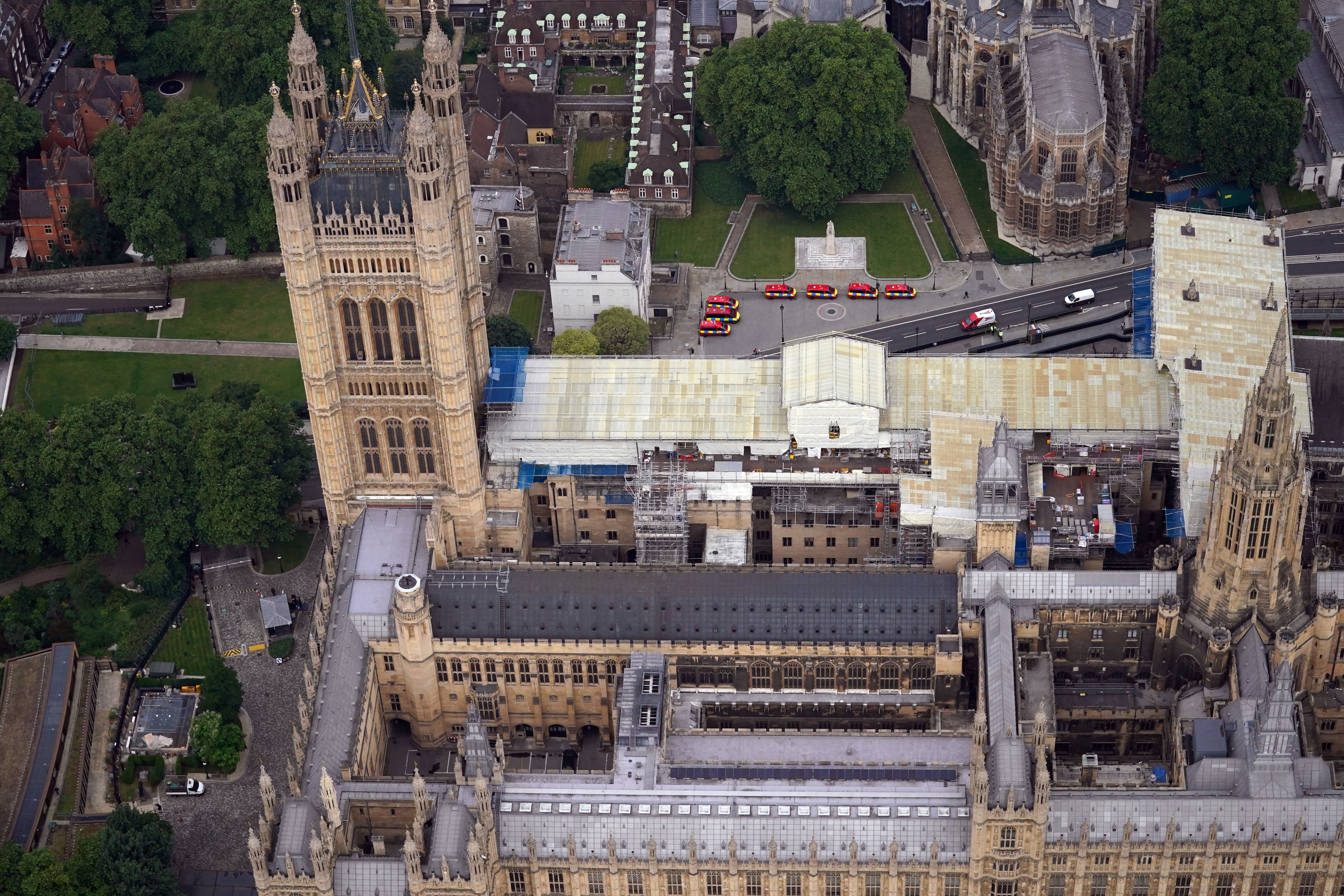Trust in UK politicians hits all-time low in wake of sleaze scandal
Almost two-thirds say MPs are in it ‘for themselves’ rather than for their country

Your support helps us to tell the story
From reproductive rights to climate change to Big Tech, The Independent is on the ground when the story is developing. Whether it's investigating the financials of Elon Musk's pro-Trump PAC or producing our latest documentary, 'The A Word', which shines a light on the American women fighting for reproductive rights, we know how important it is to parse out the facts from the messaging.
At such a critical moment in US history, we need reporters on the ground. Your donation allows us to keep sending journalists to speak to both sides of the story.
The Independent is trusted by Americans across the entire political spectrum. And unlike many other quality news outlets, we choose not to lock Americans out of our reporting and analysis with paywalls. We believe quality journalism should be available to everyone, paid for by those who can afford it.
Your support makes all the difference.The level of trust in UK politicians has plummeted to a historic low, according to a new survey that found that almost two-thirds of voters believe MPs are merely “out for themselves”.
The poll found that 63 per cent share this view, with just 5 per cent saying they believe politicians are motivated primarily by the good of the country.
In 2014, when David Cameron was prime minister, after the financial crash and MPs’ expenses scandal and several years into the Conservative Party’s ‘austerity’ period, just 48 per cent of voters believed politicians were “out merely for themselves” rather than for the good of their country or party. But by May this year, within two years of Boris Johnson taking office, this had risen to 57 per cent, and the figure now stands at 63 per cent in the wake of the Owen Paterson affair.
The Institute for Public Policy Research (IPPR) think tank said that the “disturbing” findings suggest that the recent rash of sleaze scandals has taken a toll on public perception of the political class, and has “squandered” the boost in public confidence recorded amid massive state interventions during the Covid crisis.
And the group’s director of research, Harry Quilter-Pinner, said the actions of the Johnson administration were “making things worse”.
He warned that the collapse in trust threatens the effective functioning of the democratic system, particularly on issues like climate change, where voters must be persuaded that costly action now will deliver results many years in the future.
In a report published yesterday, the IPPR suggested that changes to the selection process to deliver candidates from a wider range of backgrounds – including those who have not been to university – would be a good first step to rebuilding trust.
The YouGov poll repeated a question first asked in 1944, when just over one in three British people (35 per cent) thought that politicians were only out for themselves, while slightly more said they were motivated to serve their country.
That high level of trust in politicians’ selflessness came at a time when huge sacrifices were being demanded from ordinary people as the government undertook an unprecedented mobilisation of society to fight the Second World War.
A follow-up poll in 1972 found eroded levels of trust, but the proportion who thought politicians were primarily “in it for themselves” was still below 40 per cent.
The survey on which the new report is based found that trust in MPs falls the further away in England you travel from Westminster, with Burnley recording the lowest levels of confidence and London suburbs Hampstead and Kilburn the highest.
And there is evidence that the aftermath of Brexit has altered the make-up of the groups who express distrust in the country’s leaders.
Before the 2016 referendum, Leave backers and people with lower academic qualifications were more likely to be distrustful of politicians, but following the divisive vote, university-educated voters and supporters of EU membership are now most likely to think MPs are motivated by their own self-interest.
In the report, the IPPR proposes four changes to enhance levels of trust by narrowing the gap between voters’ hopes and their real-life experiences:
• Better public services, jobs and opportunities
• Action to tackle the biggest issues in modern life
• A bold programme of constitutional and democratic reform
• Increased diversity of election candidates and greater direct involvement for citizens in democratic processes and decision making
Mr Quilter-Pinner said: “Our research shows a significant and disturbing decline in public trust in politicians and democracy in the UK. More people than ever are convinced that MPs are primarily looking out for themselves, rather than their country.
“Rather than taking bold action now to reverse this long-term trend, the government seem to be making things worse.
“These trends are deeply concerning. In a political system where voters allow and rely on others to make decisions on their behalf, trust is the most valuable commodity. Without it, our democratic systems stop functioning effectively.
“Our politicians must act now to set the UK on a new course, away from democratic dissatisfaction, towards a system which delivers on the priorities of citizens and where everyone has a say in how society is governed.”
Join our commenting forum
Join thought-provoking conversations, follow other Independent readers and see their replies
Comments